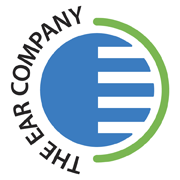Quite some time ago, I had a patient I fit with hearing aids that had a high frequency hearing loss. This particular patient purchased an excellent pair of hearing aids that allowed him to hear rather well. As is my practice, I typically do a follow up two weeks after the fitting, to see how the patient is doing and in order to make the necessary adjustments that may be needed. When the patient came in for his follow up, he reported that the hearing aids cost him a lot of money. I started to explain the cost versus benefit to the patient but he stopped me, apparently I had misunderstood. You see, he was not complaining regarding the cost of the hearing aid, as a matter of fact, he was rather thrilled with his improved hearing. The cost that was he was referring to was related costs to purchasing the hearing aids. You see when he walked out to his car from his fitting appointment and turned it on, he became aware of a hole in his muffler that had to be replaced. At home, he had to fix creaking floors and squeaky doors, thus the commentary that his hearing aids cost him a lot of money.
The examples I can give of the shock of improved hearing range from the flushing of a toilet sounding like Niagara falls to the clicking of one’s dentures being heard. Some of these sounds need to be dealt with by the audiologist, given that they go beyond what is necessary and normal but others really are long forgotten sounds. I have had patients tell me that they believed that new cars had soundless blinkers, that is, until they got their new hearing aids. There is such a thing as auditory deprivation, this is the effect on the brain relative to the long term absence of sound. Simply put, when one has not heard certain sounds for a long period of time, the brain forgets the sound exists. The longer the sound is missing the harder for the brain to reconnect to that sound rendering a useful component in the processing of information. So while clicks and squeaks can represent long forgotten sounds more important is the high frequency speech signal that is integral to the discrimination of sound (understanding speech). The longer one has a hearing loss the harder it is for the brain to reacquaint itself with that formerly missing sound. So yes, things that go squeak are important in the context of conversation and understanding speech optimally.
